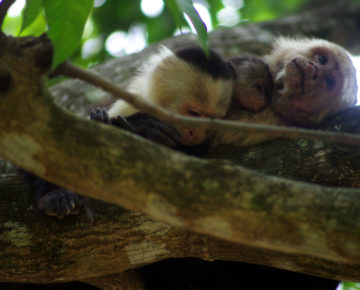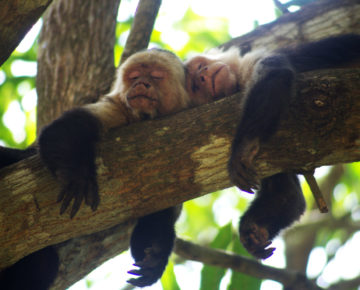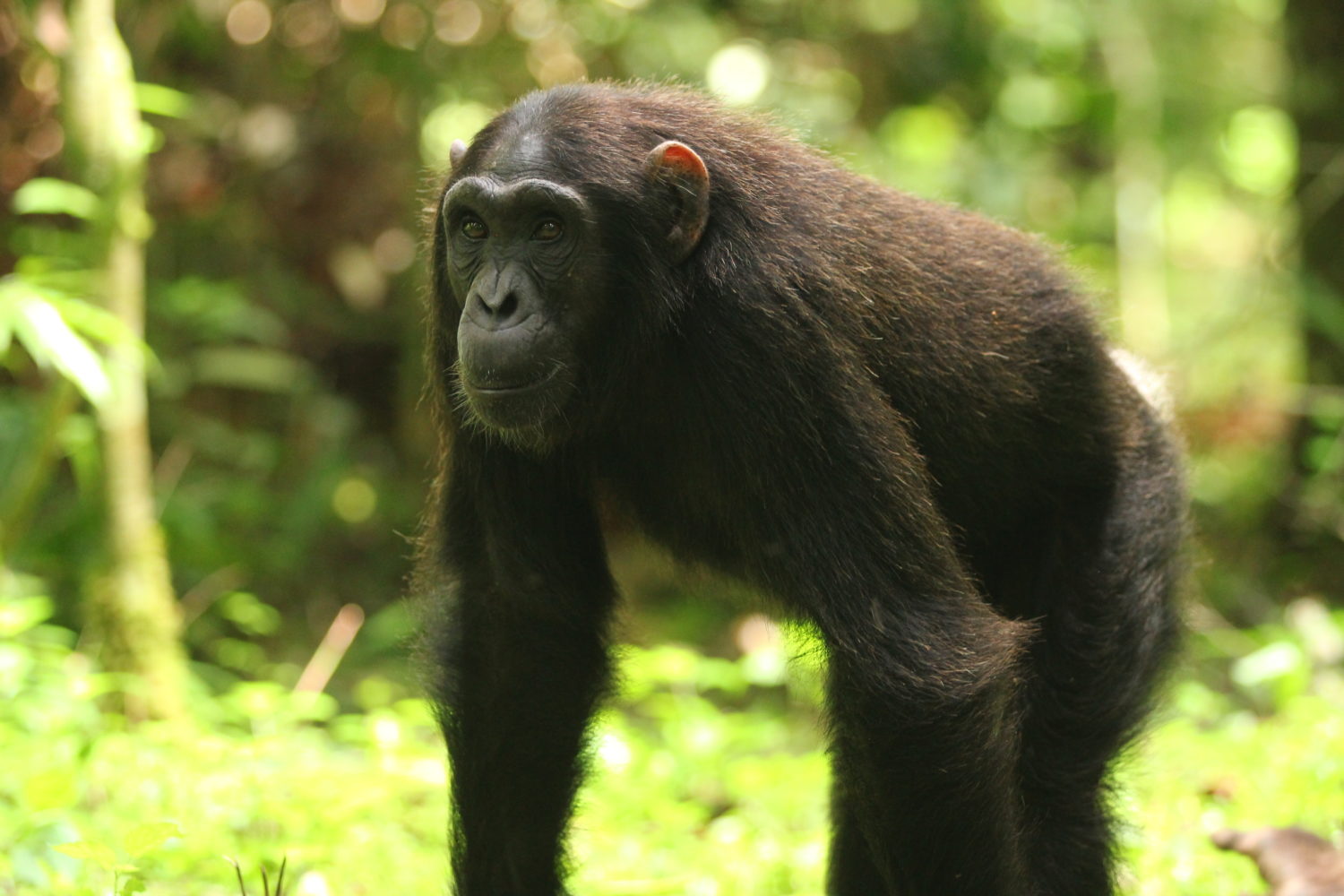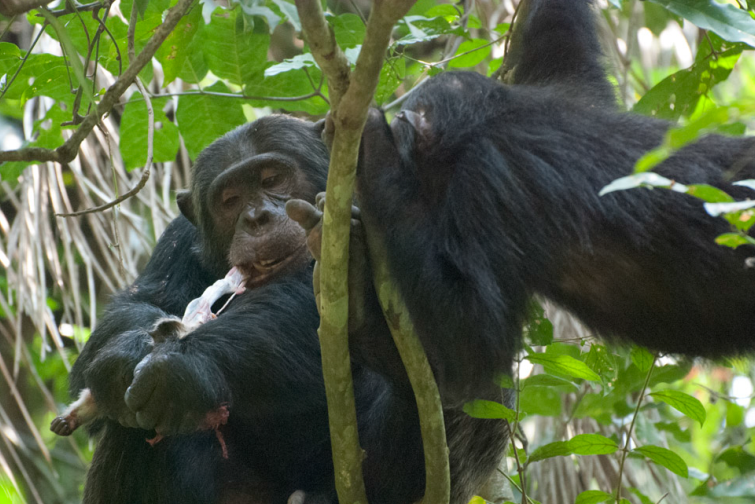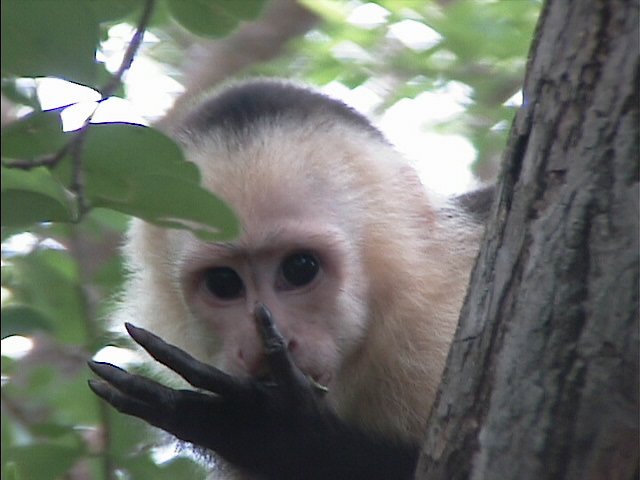Primate Tales
Primate Tales is a new blog series that explores the lives of individual apes and monkeys at research sites supported by The Leakey Foundation. The first installment of our Primate Tales series is the story of Moth, a male capuchin monkey that lives in Costa Rica. He is one of the monkeys studied by Leakey Foundation grantee Susan Perry as part of the Lomas Barbudal Monkey Project. These capuchins have become one of the most intensively studied wild monkey populations in the world.
By Susan Perry, Lomas Barbudal Monkey Project in Costa Rica
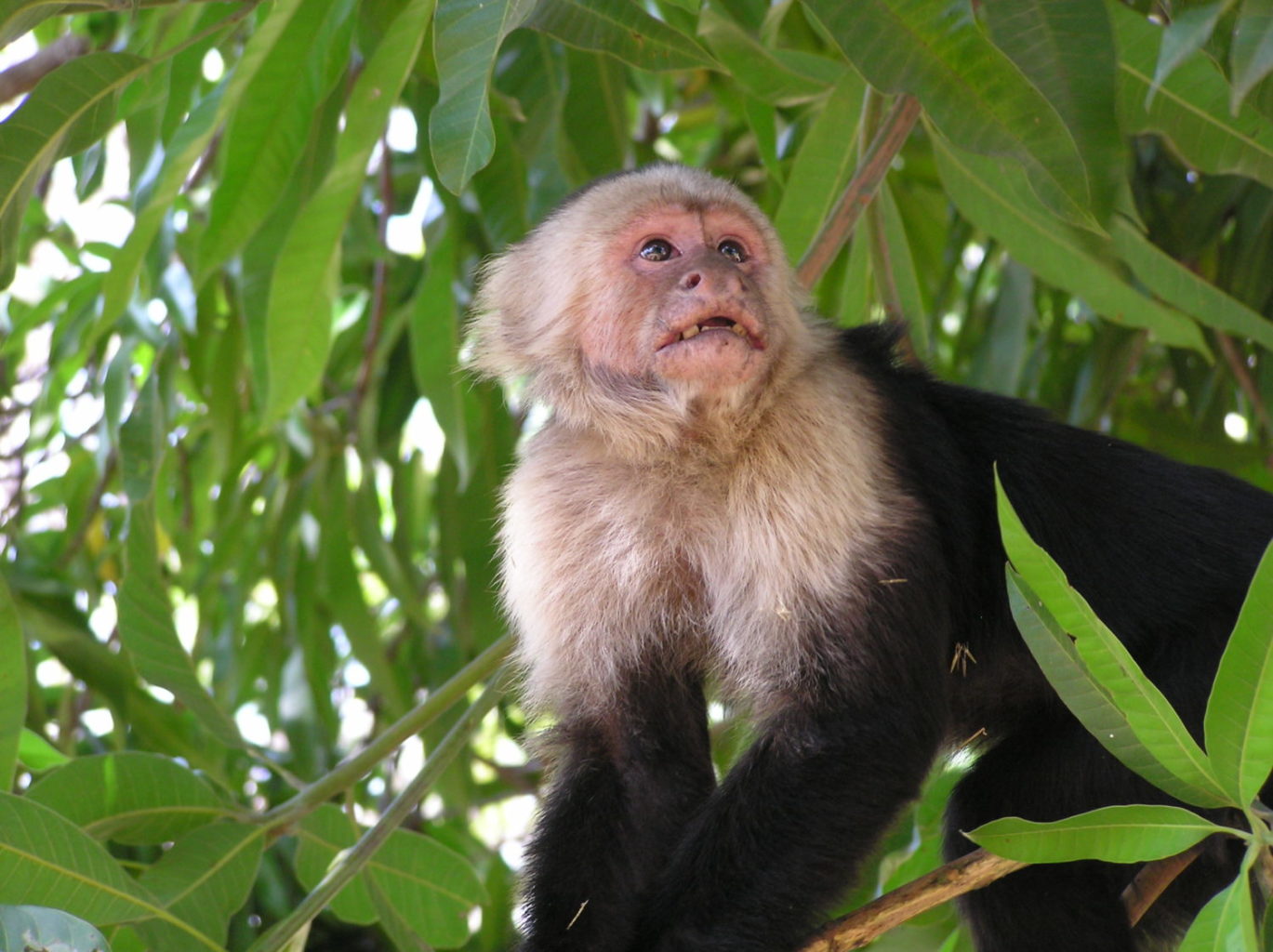
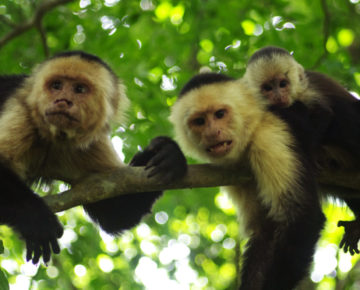
Moth was born into Rambo’s group in 1992. The circumstances of his birth were somewhat unusual, as he is one of very few individuals born into this population who was not sired by the alpha male. Moth was sired by Doble, the closest ally of the alpha male Pablo. Moth has always been an unusually large and greedy male. He was always skilled at rough and tumble play and (later) at fighting. He is one of the two largest males in the history of the project.
